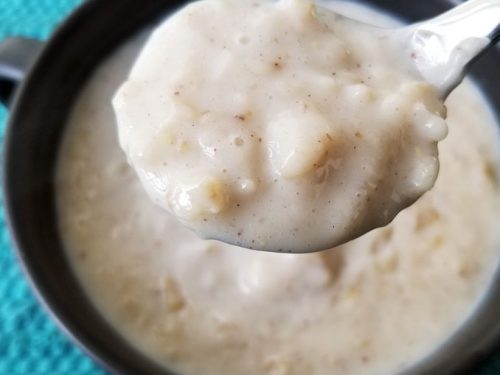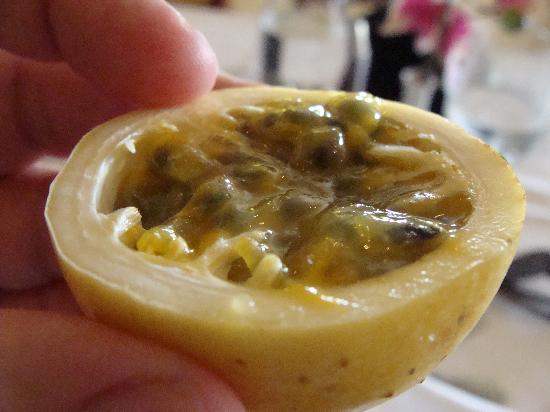Subscribe for all my updates and don't miss a thing! Sign me up!
10 Easy (and Cheap!) Ways to Make Your Home Safer (Part 2)
by Jeanie Lerche Davis
(WebMD.com)
A WebMD Feature provided in collaboration with Healthy Child Healthy World. Reviewed by Michael W. Smith, MD
...continuing from Part 1.
5. Be careful with plastic bottles and canned foods.
The safety of bisphenol A, a chemical found in polycarbonate plastics, is still being debated. These plastics are used in some water bottles and baby bottles.
Bisphenol A is also used in epoxy resins that line metal products like canned foods.
The FDA and the American Chemistry Council say bisphenol A is safe for use. However, another government report -- the National Toxicology Report -- found concern about effects on the brain, prostate gland, and behavior in fetuses, infants, and children.
And one study found that adults with high levels of BPA in their urine were more likely to have a history of heart disease or diabetes, compared to people with low levels of BPA.
What can you do to limit exposure to BPA?
* Look for safer water or baby bottles -- either tempered glass bottles or plastic bottles made of cloudy plastics like polyethelene or polypropylene (recycling symbols 1, 2 or 5) are generally safe. Avoid those marked with a "7" or "PC."
* Don't microwave plastic food containers. Heat can break down plastic fibers.
* Don't microwave with cling wraps. Put food in a glass or ceramic dish and then cover with waxed paper or paper towels.
* Eat fewer canned foods.
* Use glass and ceramic containers to store or microwave foods.
6. Filter your tap water.
Filtered tap water may be a better choice of drinking water than bottled water. In a recent study, the Environmental Working Group tested 10 best-selling brands of bottled water. Researchers found mixtures of 38 contaminants, including bacteria, fertilizer, and industrial chemicals -- all at levels similar to those found in tap water.
Here's the catch: Tap water is regulated by the EPA, which requires yearly public reports identifying the contaminants found in local water sources. But bottled water is regulated by the FDA, which has no such requirement.
"But even if you live in a place where drinking water is considered good, there can still be trace amounts of chemicals that may be toxic," says Baker.
Although your local water company filters tap water, it still comes through with contaminants -- including lead, chlorine, E. coli, pesticides. Simply filtering your tap water can remove lots of these pollutants.
A simple pitcher-type water filter may be all you need for very drinkable water, Baker advises. There are also filters that attach to a faucet or to the plumbing system. Consumer Reports has published a review of 27 water filters.
Filtering your tap water "is an easy thing to do -- you don't have to invest a lot of money in it," she says. "You just change the filters regularly. It's a 'better safe than sorry' approach." You’ll also cut down on waste in landfills by not buying – and then tossing – plastic bottles.
7. Temper the Teflon.
If you've got pots and pans with Teflon coating -- or other nonstick cookware – make sure you use them wisely. Perfluorinated (PFCs) chemicals are used to make these nonstick coatings, and the chemicals can accumulate in the body. The EPA lists PFOA (one type of PFCs used in Teflon) as a "likely human carcinogen," although there’s no evidence that Teflon-coated pans cause cancer.
DuPont and other companies have agreed, in response to government pressure, to eliminate use of PFOA by 2015. In the meantime, you can switch to other cookware now: stainless steel, anodized aluminum, copper-coated pans, cast iron, or enamel-coated iron. Silicone baking molds are also safe to use.
If you can’t do without your nonstick cookware – or if it’s too expensive to replace right away -- then follow safe cooking practices. Don’t preheat pans on high, and use the lowest temperature you can to cook food.
Two other places you'll find PFCs – in grease-resistant food packaging and as a stain-protection treatment. Reducing greasy packaged foods and fast foods in your diet (like microwave popcorn, French fries, and pizza) not only lowers your exposure, it’s also good for your heart.
If it's time to replace a big-ticket item like a sofa, say no to stain-protection treatments, advises Baker. "These add-ons cost money, and the health implications are not really known."
8. Wash your hands.
We hear this during cold and flu season -- frequent hand-washing keeps germs from getting passed around. But for young children, hand-washing is a good habit that can keep them from ingesting toxins like fire retardants in house dust. What your vacuum doesn't pick up, a toddler's hands will.
"Hand-washing may be boring, but it's really key to keeping stuff on a child's hands from getting into their mouths," says Lunder.
Another tip: Skip antibacterial soap, because some researchers believe that the quest for hyper-cleanliness may have led to weakened immune systems, and possibly to more cases of asthma and allergies. It’s also been speculated that these products may contribute to bacteria-resistant "super germs."
In fact, new research has also shown that triclosan -- the main ingredient in antibacterial soap, deodorants, toothpaste, mouthwash, cosmetics, fabrics and plastic kitchenware -- has the potential to affect sex hormones and interfere with the nervous system.
And studies show regular soap and water works just as well for killing germs. It’s about the process, not the product. Moisten hands, rub thoroughly with soap (getting backs of hands, between fingers, and around nail beds), and rinse.
Singing the ABC’s while you do it will ensure you do it for an adequate amount of time (20 seconds). Be sure adults in your house wash their hands frequently, especially after coming indoors. Ask visitors to do the same.
9. Use non-toxic cleaning products.
The conventional cleaning supplies under your sink -- with their "warning" and "poison" labels -- contain a potent mix of chemicals.
"If you've ever mopped with ammonia, you know how your lungs constrict," says Lunder. "These chemicals have a very powerful effect on kids with asthma. You're polluting the indoor air when you don't need to."
When washed down the drain, they also pollute rivers and lakes.
Look for "green" cleaners that don't contain chlorine or ammonia. Choose ones that say "petroleum-free," "biodegradable," or "phosphate-free."
Or make a cleaner yourself.
Home-brew suggestions:
* Use vinegar instead of bleach, baking soda to scrub your tiles, and hydrogen peroxide to remove stains.
* Vinegar also removes grease and soap buildup.
* Need a window cleaner? Try diluted lemon juice or vinegar. Use borax to inhibit mold growth, boost the cleaning power of soap or detergent, remove stains -- even kill cockroaches, when sugar is mixed in.
10. Eat organic, eat healthy.
When you eat organic food, you ingest fewer pesticides. You’re also helping protect the environment.
More pluses: Research shows that some organic food is more nutritious – organic fruits and vegetables have 25% higher levels of many nutrients than conventional produce.
However, organic produce can be 20% more expensive than conventional. Organic meats and dairy products might be three times the cost of conventional items.
Cut the cost of eating organic foods by:
* Buying in-season produce, which is plentiful and often cheaper at your local farmer's market.
* Selectively buy the produce that absorbs the most pesticide if not organic -- like berries, which soak up more pesticides than other fruit. You don't really need organic bananas, since they're protected by a peel.
* Buy organic for the foods you eat most often.
If you’re pregnant or breastfeeding, aim for good health in the kitchen:
* Getting plenty of omega-3 fats – like those from fatty fish and walnuts -- when breastfeeding seems to protect the fetus' brain development from toxins, Lunder says. (Note: Some fish are high in contaminants like mercury or PCBs that can harm child development.
Select safer seafoods, such as shrimp, canned light tuna, and salmon.)
* Iodine also helps offset negative effects from fire retardants, she adds. That's easy with a prenatal vitamin with iodine.
You could even try the taste of edible flowers -- like those that grow in your lawn, when you quit using pesticides. "Dandelions are salad in France," Landrigan says.
View the original article at: WebMD.com.
New! Get My Latest Book👇🏿
|
You asked, I've answered! You no longer need to save for months or years, to enjoy paradise! I spilled the beans! sharing my top tips on finding cozy accommodations and secret gems, only the way a native could! Click Here to pick it up on my e-store and start saving now! |
See The Best Of Jamaica - In Videos!
|
My channel reaches over 140,000 subscribers worldwide and has leveraged over 11 million views, sharing, what I call 'The Real Jamaica'. Subscribe today and join our family of viewers. |
Read More ...
New! Experience The REAL Jamaica!
Book Your Private Tour here and experience Jamaica the way we (locals) do!
P.S. Didn't find what you were looking for?
Still need help?
Click Here to try our dependable and effective Site Search tool. It works!
Or, simply click here and here, to browse my library of over 500 questions and answers! Chances are someone already asked (and got an answer to) your question.










